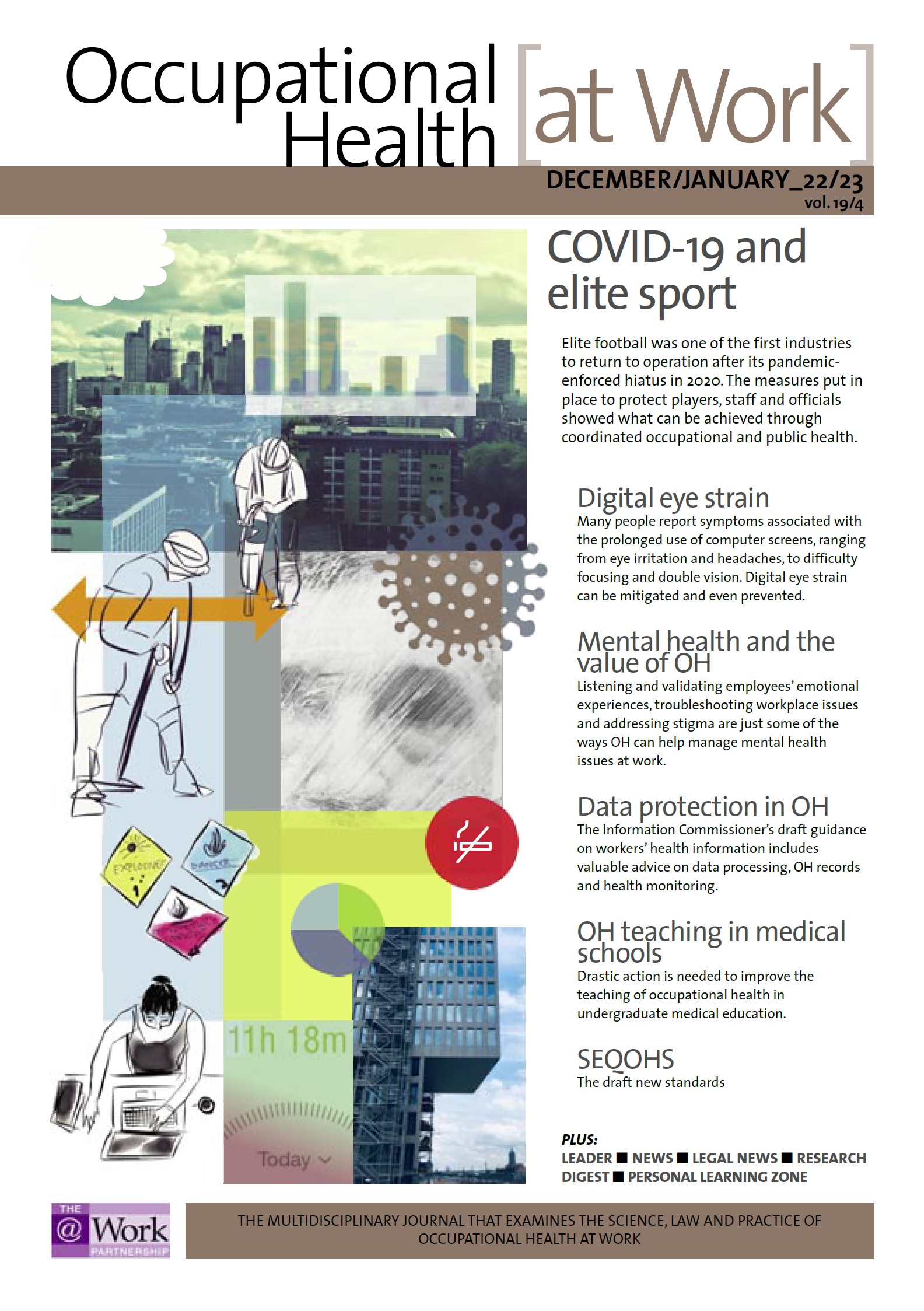December/January 2022/2023 (vol. 19/4)
ContentsFeaturesNewsLegal
NewsResearch DigestResearch PlusCPD
 Undergraduate OM training needed
Undergraduate OM training needed
Work-focused undergraduate occupational medicine teaching in medical schools needs drastic reinforcement
Summary:
There is a gap in the undergraduate teaching of occupational health to medical students. In this article, consultant occupational physician Theodore Bazas argues that drastic interventions are needed to improve this situation, including the commissioning of high-quality surveys of current undergraduate curricula to determine the state of play and where gaps should be filled.
Occupational medicine (OM) is important for the health of all working people. However, it is poorly represented in the undergraduate medical curricula, resulting in relatively few trainees seeking it out for their career, as acknowledged by the British Medical Association in its specialty guide on opportunities and careers in OM1.
It has been appreciated for more than four decades that general practitioners need to be aware of occupational and environmental hazards when discussing patients’ health problems2. The most recent survey, addressed to all UK medical schools, was carried out in 2009, and achieved a sub-optimal 66% response rate…
Dr Theodore Bazas is a senior consultant occupational physician and a national delegate in the Section of Occupational Medicine of the European Union of Medical Specialists (and coordinator of its working group on Increasing the visibility of occupational medicine). He is also an honorary senior member of teaching staff of the programme of postgraduate studies, health and safety in the workplace, of the Medical School, Democritus University of Thrace, Alexandroupolis, Greece.
Author: Bazas T
Occupational Health at Work December/January 2022/2023 (vol. 19/4) pp39-40



